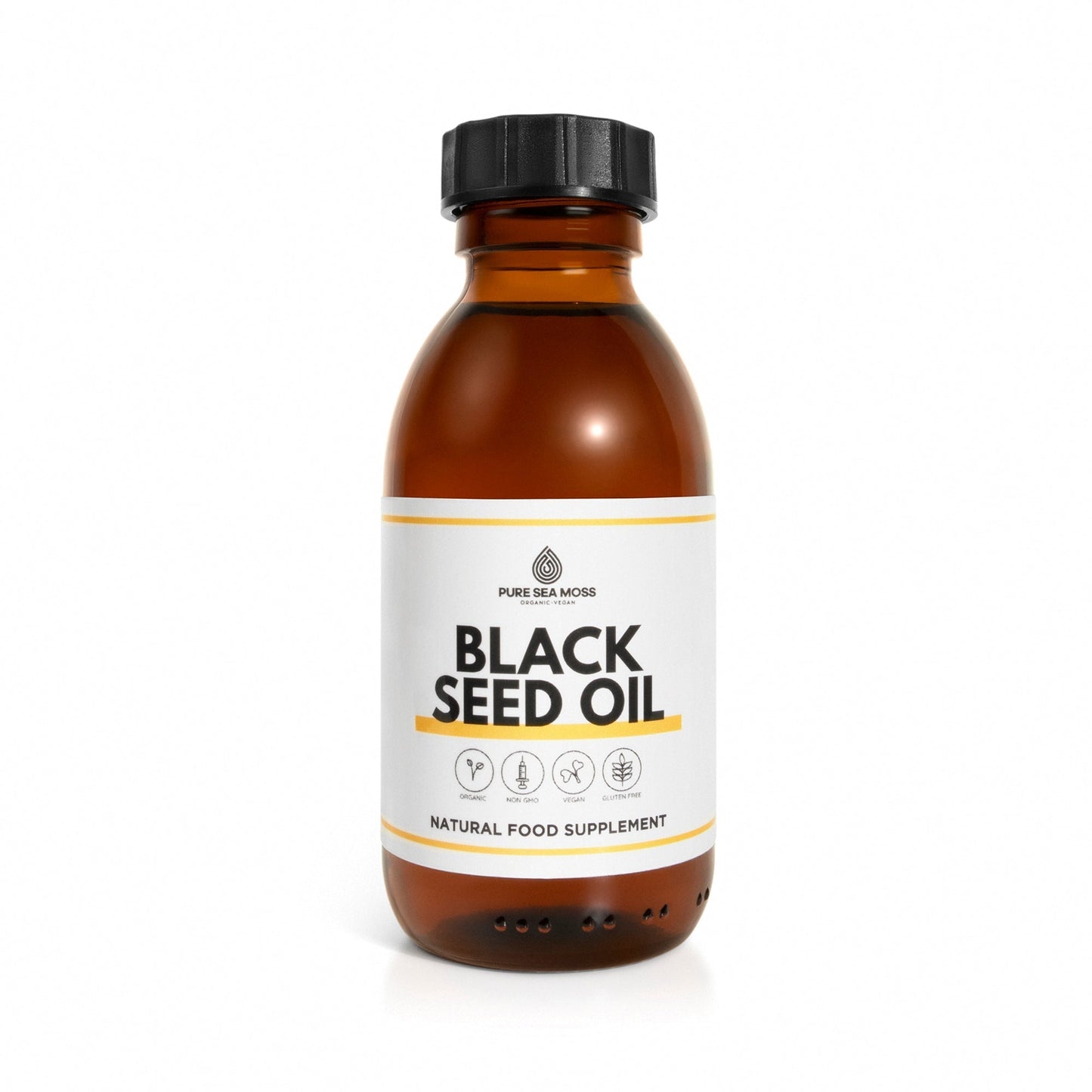
Black Seed Oil: Ancient Wisdom for Modern Wellness
Author: John S. Matthews | Updated: Monday, 13 October 2025 | 12:32 BST
For centuries, black seed oil—also known as Nigella sativa or black cumin seed oil—has been praised in Middle Eastern, Asian, and African traditions for its wide range of uses. It’s now a staple in many UK wellness routines, valued for its distinctive taste and versatile applications in food, skincare, and daily supplementation.
Featured Summary: Black seed oil is a cold-pressed oil from Nigella sativa seeds, rich in thymoquinone and antioxidants. Start with ½ tsp daily with food, use a few drops topically (patch test first), and avoid high-heat cooking to preserve potency.
Understanding Black Seed Oil
Pressed from tiny jet-black seeds, the oil carries a peppery, earthy profile. It is naturally rich in essential fatty acids, antioxidants, and bioactive compounds—especially thymoquinone, considered central to its effects in traditional and modern use.
Key Benefits (Tradition & Emerging Research)
- Immune support: Antioxidant activity helps defend cells from oxidative stress.
- Inflammation balance: May help modulate the body’s inflammatory response.
- Digestive comfort: Commonly used to ease bloating and support gut balance.
- Respiratory ease: Traditionally used to support clear airways during seasonal changes.
- Heart-health support: Early studies suggest potential benefits to cholesterol and blood pressure when combined with a balanced diet.
Note: Human research is promising but still developing. Use black seed oil as part of a balanced lifestyle, not as a medical treatment.
How to Use Black Seed Oil
1) Oral use
Start with ½ tsp (2–3 ml) daily with food. Mix with honey or warm water to soften the taste. Increase to 1 tsp if well tolerated, and follow your product label.
2) Topical
Apply a few drops to skin or scalp, neat or blended with a carrier oil (e.g., jojoba). Useful for dryness or scalp irritation. Patch test first; avoid eye contact.
3) Culinary
Drizzle over salads, stir into yoghurt or hummus, or add to a warm herbal infusion. Avoid high-heat cooking to preserve potency.
Pairing with Sea Moss
When used together, black seed oil and sea moss gel make a well-rounded routine: sea moss contributes gentle fibre and minerals, while black seed oil offers plant actives such as thymoquinone. Introduce one at a time and keep amounts small but consistent.
Quick Tips
- Store in a cool, dark place—heat and light reduce quality.
- Consistency beats large, occasional doses.
- Choose cold-pressed, 100% pure oil from reputable UK suppliers.
Related reading
Disclaimer: Information is for general use and not a substitute for professional medical advice. Speak to a healthcare professional before using black seed oil if pregnant, breastfeeding, have thyroid issues, or take medication.
